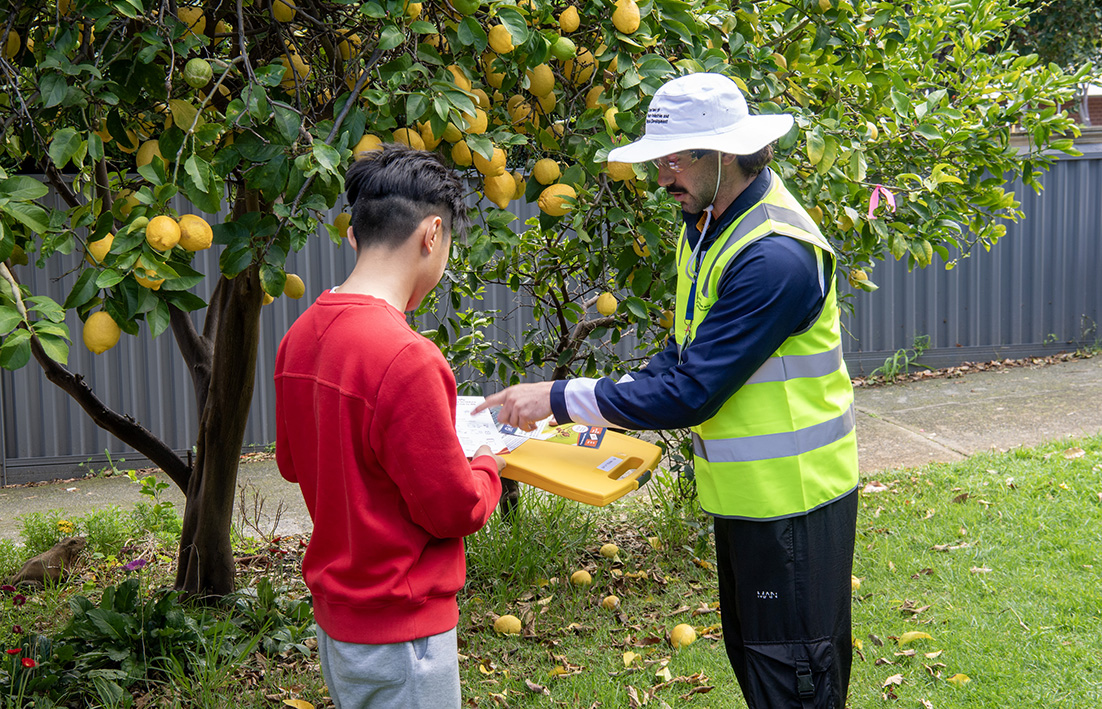
A SINGLE Qfly found in a Nollamara residential area on September 12 has led to the extension of the quarantine area notice.
The quarantine area notice has been extended to Tuesday, December 5, pending no further detections within the quarantine area – the quarantine area itself however, remains unchanged.
The quarantine area is a 15km radius from the intersection of Frinton and Roberts streets in Bayswater and includes Swan, Mundaring, Bassendean, Perth, Belmont, Gosnells, Kalamunda, Vincent, Joondalup, Wanneroo, Melville, Canning, South Perth, Subiaco, Stirling, Nedlands, Belmont, Claremont, Victoria Park, and Cambridge.
The national fruit fly management protocol requires the absence of Qfly in the quarantine area for one generation plus 28 days or 12 weeks after the last wild fruit fly or larvae is detected (whichever is longer) before a quarantine notice can be lifted.
On Wednesday the Department of Primary Industries and Regional Development (DPIRD) said supplementary traps had been deployed in the detection area and surrounds with no additional flies being found to date.
“Monitoring of surveillance traps across the quarantine area and the broader metropolitan area continues, as part of the department’s Qfly monitoring network,’’ a DPIRD spokeswoman said.
“DPIRD is liaising with Swan Valley growers and providing advice and assistance where required.”
On October 27, DPIRD said the strict requirements around moving fruit and fruiting vegetables for Bayswater and Belmont residents had now been lifted and they were now subject to the same movement conditions as those in the broader quarantine area.
While Bayswater and Belmont residents are no longer required to cook, freeze, process or solarise host fruit or fruiting vegetables before disposal, the measures were still recommended to prevent Qfly or other pests taking hold in the area.
Residents no longer have to remove fallen fruit every three days but are still encouraged to do so to maintain good garden hygiene.
For updated information on the new requirements visit the Qfly biosecurity response DPIRD webpage www.agric.wa.gov.au/qflyupdate
Reports of suspected Qfly should still be made to DPIRD’s pest and disease information service on 9368 3080, email padis@dpird.wa.gov.au or via the MyPestGuide Reporter app.